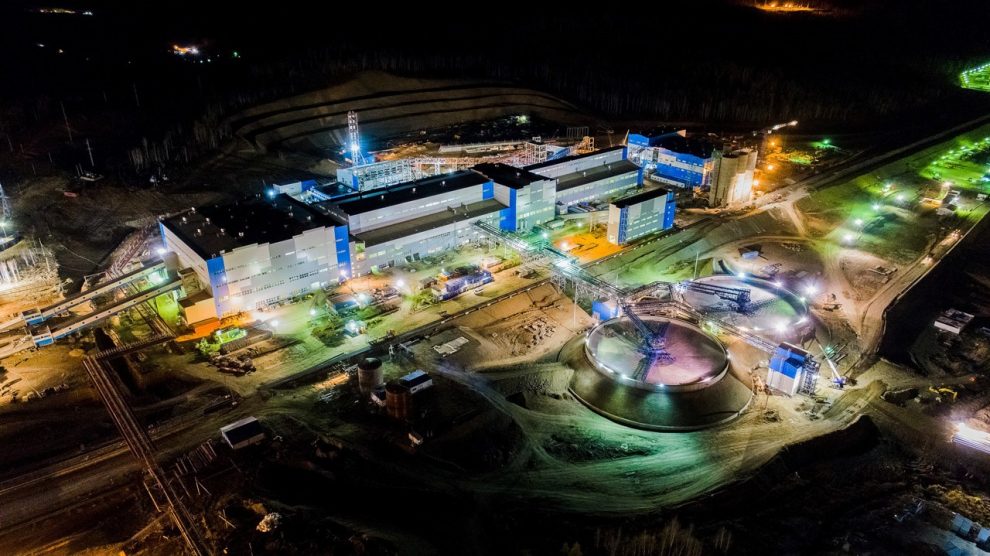A commitment to world-leading ESG standards are now the primary focus of Nornickel’s operations.
Nornickel, the world’s largest producer of high-grade nickel and palladium has told its investors that protecting and cleaning up the environment are now a key part of its operations.
- Emerging Europe needs a new growth model with a focus on innovation
- New Nornickel ESG report commits firm to boosting ecological efficiency
- The World Bank’s Doing Business report is no more. At least one country in Eastern Europe will miss it dearly
“Our course forward is towards integration into the new green economy,” said the firm’s president, Vladimir Potanin.
“Higher focus on the global climate agenda drives up demand for our key metals and reconfirms our strategy to grow production. I believe that transformational investments will result in higher value for Nornickel and its shareholders, combining industry-leading profitability and top-notch ESG [environmental, social, governance] standards.”
Nornickel’s Capital Markets Day – where the company shares its key strategy goals with investors – emphasised the group’s green strategy, which includes a set of projects intended to clean legacy pollution in the Arctic city of Norilsk – one of its key areas of operations – and a sharp reduction in sulphur emissions.
Clean-up
Most of Nornickel’s operations in metal mining and refining take place in harsh Arctic environments such as Russia’s Kola and Taimyr peninsulas. Taimyr was last year the site of a major diesel fuel spill, but Nornickel confirmed that the clean-up was progressing well.
The firm started cleaning contaminated soil with bacteria this short Arctic summer, suspended it for winter, and plans to resume the clean-up in the coming spring.
“Fuel residues were cleaned this year and will continue to be cleaned up for as long as it will require,” said Andrey Bougrov, Nornickel’s Senior Vice President for Sustainability.
Another legacy issue is a clean-up of historical pollution in Norilsk, the industrial city founded by Soviet explorers 86 years ago in a push to secure rapid industrial output.
“This year we entered into active implementation of this programme, having set up a dedicated 750-strong department in Norilsk with over 120 pieces of various equipment as we target the dismantling of over 175 obsolete buildings and structures this year and remove over 0.5 million tonnes of waste,” added Bougrov. The clean-up programme is scheduled to take 10 years with a total budget of approximately 0.6 billion US dollars, he said.
The group – Russia’s top metals and mining player in terms of revenues and market value – is also committed to reducing its sulphur dioxide footprint by cutting the emission of SO2 – a gas emitted in the ore refining process.
The group’s top management reported that its sulphur programme at its Kola division has already been completed.
“We expect sulphur dioxide emissions in Kola to be reduced in 2021 by about 85 per cent from the base year (2015), when the programme started,” said Bougrov. “Importantly, cross border emissions have been completely eradicated.”
Time for financial markets to focus on the future, not the past
In a bid to make the air in Norilsk cleaner, the company this year is launching real time air quality monitoring in the city’s residential district. “Our ultimate goal is to have this system fully automated, with the city’s residents being able to check air quality via a phone application in real time,” said Bougrov.
Nornickel this year continued working on strengthening its reputation as a responsible supplier and has accessed or applied for a number of international certifications and standards. The group obtained certificates for a reduction of CO2 emissions over 2019 and 2020, which enabled it to allocate the savings towards the production of carbon neutral nickel this year.
ESG rating agencies now rank Nornickel on a par or even above global mining industry averages. Nonetheless, the company’s management feels that Nornickel deserves better ratings, which are impeded in part by very strong path dependency of ESG ratings methodology.
“It is very much backward looking, penalising heavily for the past and not giving much credit for the outlook,” said Bougrov.
“This is totally different to how financial markets approach the valuation of stocks. Nevertheless, we hope that the delivery against our environmental and other ESG targets will eventually translate into ESG rating upgrades. But this will take time.”
Nornickel’s newly elected chief operating officer, Sergey Stepanov, confirmed that the company plans a comprehensive review of industrial safety requirements and standards in 2022, and is committed to a reduction of fatal accidents across operations for 2022 – 2025.
This content has been produced in collaboration with an Emerging Europe partner organisation.



Add Comment